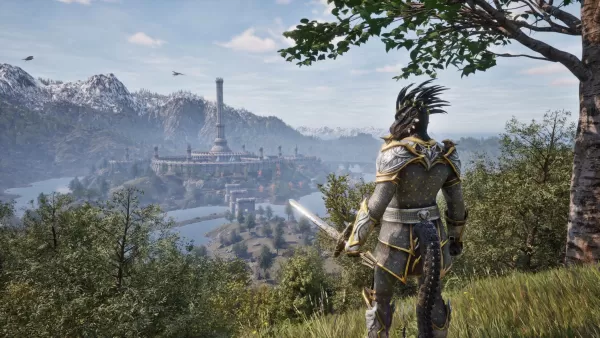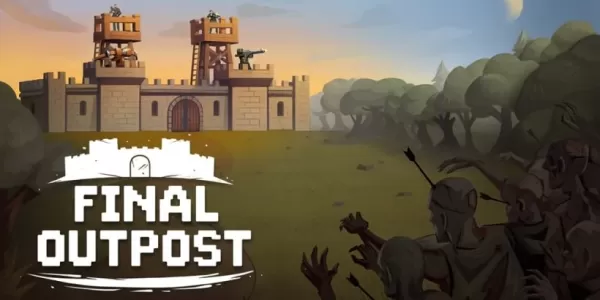"Remakes Key to Bethesda's Revival, Oblivion Shows"
By Azura, by Azura, by Azura – the rumors were true. Yesterday, Bethesda set the internet ablaze by finally unveiling Virtuos' remaster of The Elder Scrolls IV: Oblivion. The surprise shadow-drop during an 'Elder Scrolls Direct' event led to an immediate surge of hundreds of thousands of concurrent players. This moment of global excitement and celebration feels like a much-needed beacon amidst the recent challenges Bethesda Game Studios has faced. From managing the fallout of Fallout 76's rocky launch to the lukewarm reception of their new sci-fi venture, Starfield, the studio's recent efforts have left many fans wondering: Has Bethesda lost its magic touch? With fierce competition from RPGs like Larian Studios' Baldur's Gate 3 and Obsidian's The Outer Worlds, which have both been hailed as spiritual successors to Elder Scrolls and Fallout, the future of Bethesda's flagship series seemed uncertain. Yet, this re-release of Oblivion could be a strategic step forward, albeit not in the expected direction.
At its peak, Bethesda Game Studios was synonymous with groundbreaking RPGs. In 2020, leaked FTC documents from Microsoft revealed that Fallout 4 had sold 25 million units, with over 5 million units sold in its first week alone, according to VGChartz. By 2023, Todd Howard announced that Skyrim had surpassed 60 million sales, although multiple re-releases certainly played a part. In contrast, Starfield has only managed to sell around three million units a year-and-a-half after its launch. While Game Pass subscribers and the absence of a PlayStation version may have affected these numbers, the figures are still a letdown for Bethesda. Even the dedicated Starfield fanbase has expressed disappointment with the game's first expansion, Shattered Space.
This leaves Bethesda with a significant challenge. With The Elder Scrolls 6 and Fallout 5 still years away, how can the studio reignite the passion of its fanbase? The answer may lie in revisiting its storied past.
Rumors of an Elder Scrolls IV: Oblivion remaster started circulating in September 2023, following the leak of Microsoft documents that hinted at several unannounced Bethesda projects, including a remaster of the 2006 classic. The buzz continued to build until January 2025, when a former Virtuos employee leaked more details, sparking debates among fans about the remaster's authenticity. Last week, the floodgates opened prematurely, setting the internet on fire – Google searches for 'The Elder Scrolls IV: Oblivion' soared by 713% in the past week, reaching over 6.4 million. Bethesda's reveal livestream peaked at over half a million viewers. Despite the leaks, over 600,000 people tuned in to witness the unveiling of a 19-year-old game. The fervor for the remaster was so intense that it caused discount game key websites like CDKeys to crash, and slowed down Fanatical and Green Man Gaming. As of yesterday, Steam reported 125,000 concurrent players, with the game topping the best-seller list. The enthusiasm for Oblivion among Bethesda fans is as vibrant as the flames pouring from the Oblivion gates themselves.
The clear message from players is: if you (re)build it, they will come. What better way to keep fans engaged during the long development cycles than to invite them back to the enchanting realms of Morrowind or the post-apocalyptic landscapes of the East Coast? From a business perspective, this strategy is a no-brainer. While Bethesda's main team focuses on new, long-term projects, trusted partners like Virtuos can work on remasters using established blueprints. These remasters target games with existing fanbases and often introduce a new generation to the iconic worlds of Tamriel and the Fallout series.
Bethesda has successfully leveraged its catalog before. During the first season of the Fallout TV show on Prime Video, Fallout 4 was discounted by up to 75%, accompanied by a timely next-gen update that included nods to the show. As a result, Fallout 4's sales in Europe surged by over 7,500%, despite being nearly a decade old.
 Oblivion Remastered offers a visit to the past that looks like the future. Image credit: Bethesda / Virtuos
Oblivion Remastered offers a visit to the past that looks like the future. Image credit: Bethesda / Virtuos
Looking back at Microsoft's leaked Bethesda roadmap, many noticed that a Fallout 3 remaster was slated to follow Oblivion by two years. Although the original timelines have shifted – Oblivion was initially projected for fiscal year 2022 – if the gaps between projects remain consistent, a Fallout 3 remake might be on the horizon for 2026, coinciding with the second season of the Fallout TV show. Given the show's first season's alignment with Fallout 4's atmosphere, it's conceivable that Bethesda could be planning something even more strategic for the New Vegas-focused second season. After shadow-dropping Oblivion, it's not far-fetched to think a New Vegas Remastered trailer could be waiting for us at the end of Fallout Season 2's finale.
The message from players is clear: if you (re)build it, they will come. However, if there's one game in Bethesda's catalog that truly deserves a remake, it's The Elder Scrolls III: Morrowind. For years, fans have been clamoring for this, with some even remaking it using Skyrim's tools, as seen in projects like Skyblivion. Yet, Morrowind poses unique challenges for remaking. It stands at the crossroads of Bethesda's evolution, built differently from what we now expect from an Elder Scrolls game. It's only partially voiced, with much of its story conveyed through text, no quest markers, and simplistic combat physics. While Virtuos successfully updated some of Oblivion's more cumbersome systems, Morrowind's entire framework is a challenge. Its charm lies in its quirks, but these same elements make it a difficult game to modernize. Remaking Morrowind is a delicate balance; too much modernization could strip away its original magic, while retaining too many old systems could result in a less-than-satisfactory experience.
When a studio becomes the icon of a gaming sub-genre, the challenge is to innovate and evolve while retaining its audience. Rockstar Games has kept Grand Theft Auto fans engaged for over a decade with the ever-evolving world of GTA Online, fueling the rumored massive budget for GTA 6. Bethesda's strength lies in its richly detailed, expansive single-player worlds – Elder Scrolls Online and Fallout 76 simply don't capture the same essence. The overwhelming response to Virtuos' Oblivion remaster shows that gamers are eager to revisit Bethesda's historic worlds. This particular remaster is a testament to careful planning and skilled execution, unlike some less successful remakes, such as Rockstar's GTA Definitive Editions. For Bethesda, the former king of modern RPGs, breathing new life into old classics may be the key to getting back on track.





























